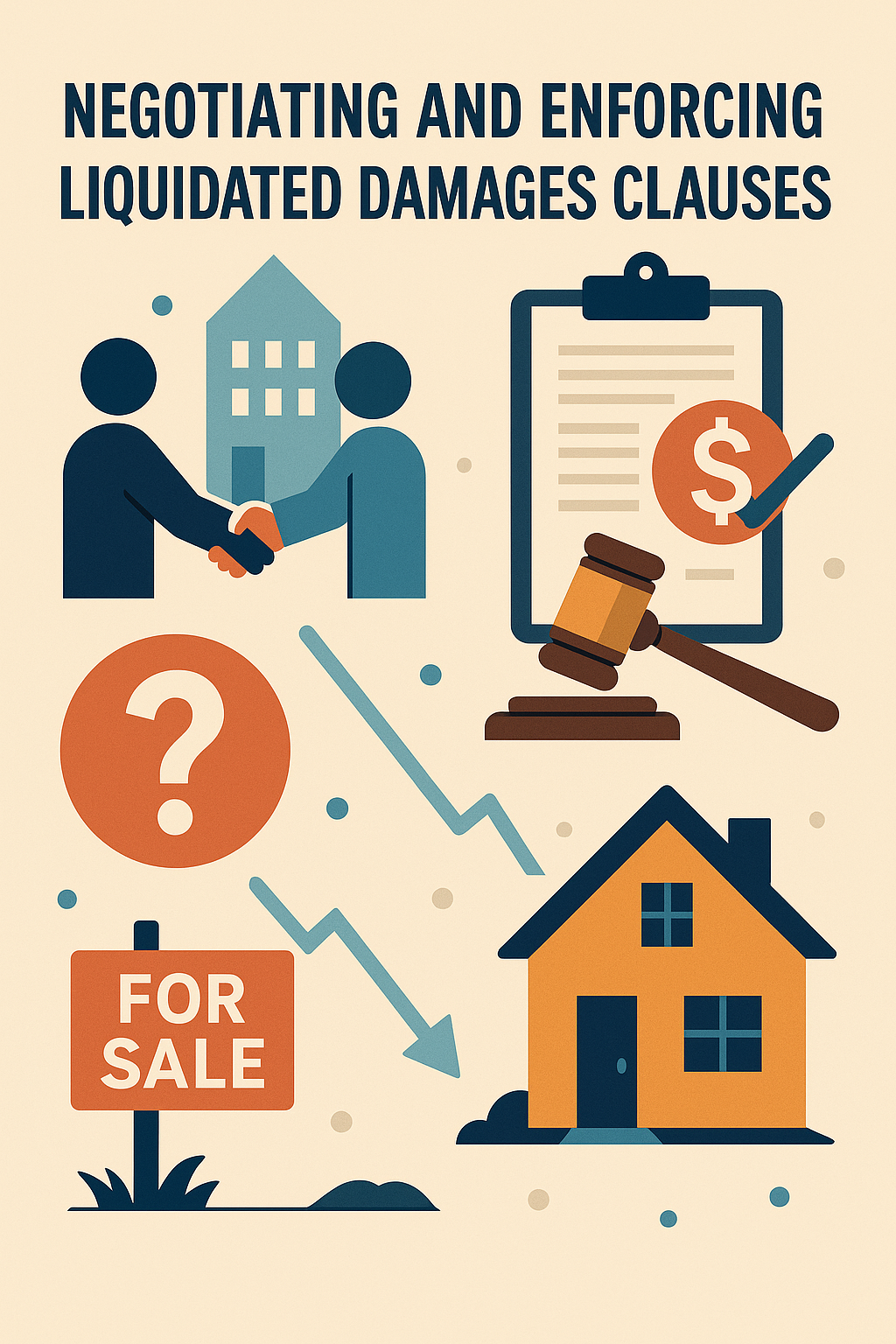
In today’s real estate and business sales market, buyers can be unpredictable. Rising interest rates, economic uncertainty, and shifting priorities often cause deals to unravel at the eleventh hour. For sellers—whether selling property or an entire business—this creates not only frustration but also real financial risk. One of the most effective tools to address this risk is the liquidated damages clause.
What Is a Liquidated Damages Clause?
A liquidated damages clause is a contract provision that sets a predetermined amount of money the buyer will owe if they breach the agreement. Instead of litigating uncertain damages later, the parties agree in advance to a fair and reasonable sum that represents the seller’s likely losses from a failed deal.
For example, in a real estate sales contract, the buyer may forfeit their earnest money deposit if they back out without justification. In a business sales contract, the clause might specify a percentage of the purchase price owed if the buyer refuses to close.
Why These Clauses Matter in Uncertain Times
Today’s buyers are more hesitant and less predictable. Economic swings, changes in financing availability, and fluctuating valuations lead many to walk away from deals late in the process. For sellers, this could mean months of lost time, missed opportunities with other buyers, and out-of-pocket expenses for due diligence.
A properly drafted liquidated damages clause provides certainty. Sellers know they will be compensated for wasted time and costs, while buyers know exactly what their risk is if they fail to perform.
Key Considerations in Negotiating the Clause
- Reasonableness of the Amount – Courts will not enforce a penalty. The damages must reasonably reflect anticipated losses. For real estate, this is often tied to the earnest money deposit. For business sales, it may be tied to due diligence and lost opportunities.
- Timing and Trigger Events – The contract should clearly state when the damages apply—e.g., buyer fails to close after financing and inspection contingencies are waived.
- Mutuality and Fairness – While typically drafted in favor of the seller, making the clause appear balanced increases enforceability.
- Jurisdictional Enforcement – State laws vary. Some jurisdictions scrutinize these clauses more closely, so understanding local precedent is critical.
Enforcing the Clause in Practice
If the buyer defaults, the seller’s first step is to point to the liquidated damages provision as the exclusive remedy. In real estate, this often means retaining the earnest money deposit without lengthy litigation. In business sales, enforcement may involve filing suit, but the pre-agreed clause significantly strengthens the seller’s position.
Courts generally enforce these provisions if:
● The damages were difficult to estimate at the time of contracting; and
● The amount chosen was a reasonable forecast of actual harm.
If the clause is drafted as a punitive measure rather than a compensation tool, courts are likely to strike it down.
Final Thoughts
In today’s fickle market, negotiating a strong liquidated damages clause is more important than ever. Sellers need protection against buyers who walk away after weeks or months of negotiations. By working with experienced counsel to ensure the clause is reasonable, clear, and enforceable, parties can strike a fair balance that keeps deals secure—even when market conditions are anything but.
At David C. Barsalou, Attorney at Law, PLLC, we help clients navigate business, family, tax, estate planning, and real estate matters ranging from document drafting to litigation with clarity and confidence. If you’d like guidance on your situation, schedule a consultation today. Call us at (713) 397-4678, email barsalou.law@gmail.com, or reach us through our Contact Page. We’re here to help you take the next step.